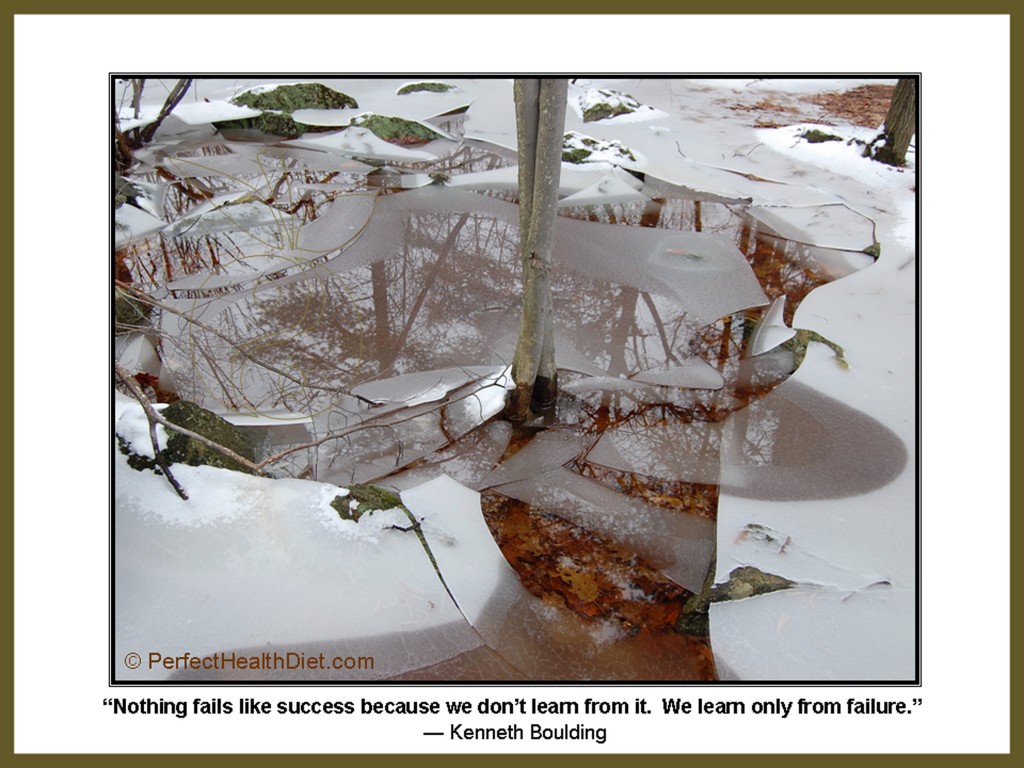[1] Why I Blog: A few weeks ago Joan asked my advice for her sister, who has suffered from eczema for over 40 years:
My 59 year old sister has Chronic Fatigue Syndrome…. Since her teens she has had from time to time small scaly patches that resolve with omega-6 supplementation…. At the present time she is taking 2 tablespoons of organic cold-pressed safflower oil 4X a day to control it. If she misses a dose her arms and face rapidly develop eczema which in a short time opens up and oozes.
As it happens, the primary symptom of an omega-6 deficiency is eczema. We discuss this in the book on p 55:
In humans, the main symptom of an omega-6 deficiency is a dry scaly skin rash. In the 1940s and 1950s, it was common to feed infants a fat-free milk formula – skim milk with sugar. After some months, these infants developed eczema which could be cured by providing lard, which is about 10% PUFA.
Why was she becoming omega-6 deficient despite eating 8 tbsp (120 ml) a day of safflower oil? If omega-6 is deficient the body won’t consume it for energy. But omega-6 (and omega-3) fats are also destroyed by oxidation; our book discusses this on pp 65-67. Controlled oxidation of the longer 20-carbon omega-6 fatty acids to eicosanoids is exploited by the body as a signal of infections and stimulant of immune activity. Uncontrolled oxidation turns omega-6 fats into dangerous aldehydes.
To destroy 100 ml of safflower oil per day requires a huge level of oxidative stress. It indicates some sort of infection, and a severe deficiency of antioxidants. So I advised supplementation with zinc, copper, selenium, vitamin C, vitamin E and glutathione, as well as vitamins D, A, and K2 which help fight infections.
This week Joan gave us an update:
Hi Paul,
You will remember 12 days ago I asked you about my sister who has CFS and was taking 100 mls a day of safflower oil to keep eczema under control….
Your advice was spot on and the results have been miraculous. She started supplementation with zinc, copper, selenium, vitamins C, E, D and K and NAC. Within 24 hours her eczema was much improved and she began reducing the safflower oil. Now 10 days later she is down to 10 mls of safflower oil and is confident she can discontinue it completely in a few days. Her eczema has completely cleared and her skin is looking good.
Not only that, but some of her CFS symptoms have improved. Her constant headache is not as severe, irregular heartbeat episodes have almost completely stopped and she is tolerating slightly more physical activity. Needless to say she is absolutely delighted and wants me to pass on her deepest gratitude to you. Her words are, “It’s a miracle”. Once again Proverbs 13:12 springs to mind. “Hope deferred makes the heart sick, but a longing fulfilled is a tree of life.” Her sense of despair and resignation has gone and you have given her hope of a better future. Words seem inadequate to express thanks for that.
Congratulations, Joan’s sister! And thank you, Joan, for passing on your sister’s results. It made my day. And that’s why we blog – to try to develop and share knowledge of dietary and nutritional healing methods that, without our work, would be overlooked, leaving people to suffer needlessly.
[2] Vigilance is the Price of Liberty: Steve Cooksey, Diabetes Warrior, is being threatened by the North Carolina Board of Dietitians for giving dietary advice without a license. His crimes can be seen on this notice from the official investigation review:
If people are writing you with diabetic specific questions and you are responding you are no longer just providing information – you are counseling – you need a license to provide this service.
Here you are giving this person advice based on what she has said to you…. Counseling/advising requires a license.
You guided her (for her friend) to your meal plan – indirectly you conducted an assessment and provided advice/nutritional counseling.
The director of the Board of Dietitians consoled him: “even IF convicted, it would only be a misdemeanor.” Steve is looking for an attorney.
Of course, laws like this would make it illegal for me to respond to questions too. “Miracles” like that of Joan’s sister would be outlawed, in the hope that a few politically connected dietitians might make a few more dollars.
And it doesn’t end with licensing. The licensees get subject to standards of practice and have to conform or risk loss of their livelihood. Their ability to innovate is stifled; in time bureaucraticized medicine can sap even their will or ability to serve patients.
All of us should be outraged at these corrupt attempts to deprive us of freedom of speech, and of freedom to enter a profession as entrepreneurs with innovative approaches.
[3] Music to Read By: Rhapsody in Blue, played by piano and tap shoes:
[4] Interesting Items this Week:
Friend of the blog Allan Balliett is up and running with his Biodynamics Now podcast at www.bdnow.org. He’s kicked off the podcast with two star guests: Joel Salatin, self-described “Christian-libertarian-environmentalist-capitalist-lunatic-Farmer,” and Sally Fallon Morell, leader of the Weston A Price Foundation. An interview with Dr Thomas Cowan, author of The Fourfold Path to Healing and a Weston Price Foundation affiliated doctor, is coming up soon; visit Allan’s blog to leave questions for Dr Cowan.
Via Allan’s interview, I learned that Sally Fallon has fulfilled a dream. She owns a farm and is making cheeses.
We were very happy to see our diet mentioned in the Sunday, Jan 22, 2012 US Wellness Meats newsletter. GrasslandBeef.com, of course, is a great source of PHD-compatible food.
Chris Kresser has a new podcast: Why It’s So Hard To Lose Weight – And Keep It Off.
Prof Dr Andro compares BPA, soy, and corn oil: which is the best endocrine disruptor?
Via Russ Farris, a new paper suggests that high levels of vitamin D increase inflammation and raise CRP.
Dan’s Plan credits bacon with saving the life of a 4 year old boy.
Chris Masterjohn says zinc defends against AGE production, and that vitamins A and D protect against autoimmune disease.
Michael Ellsberg explains how he overcame bipolar disorder.
Gary Taubes has an update. His colleague Peter Attia is blogging at “The War on Insulin” and they are starting an “insurgency” to wage this war. Meanwhile, a medical student at Virginia Commonwealth, Larry Istrail, has started the Ancestral Weight Loss Registry.
Seth Roberts defends personal science.
It pays to have a good marriage: an 85-year-old woman beat off a moose attack on her 82-year-old husband.
Future Pundit gives us an interesting fact about autism: the twin with the smaller birth weight is more likely to become autistic.
Iodide heart scans confirm that it’s risky to suddenly increase iodine intake: people who take a high dose of iodine for imaging studies are more likely to develop thyroid disease in subsequent years. Iodine is good for us, but protect your thyroid by starting low, combining it with selenium, and increasing the dose very slowly.
A testimonial at robbwolf.com: Paleo works better than immune suppression for ulcerative colitis.
Homeopathy for nematodes? Drinking 0.01 proof alcohol is sufficient to extend the lifespan of worms.
A mystery illness is afflicting upstate New York teens. Video at the link. Erin Brockovich is involved.
Jamie Scott continues his series on the adipogenic nature of omega-6 fats.
Emily Deans reports that Lactobacillus rhamnosus knows how to control our mood.
CarbSane reports that saturated fat is more likely than polyunsaturated fat to induce gestational diabetes.
Stephan Guyenet adds a nail to the coffin of the insulin-obesity hypothesis, but Peter Dobromylskyj pulls one out: he shows that adipose tissue needs insulin receptors if hypothalamic damage is to be obesogenic in mice.
Via Shari Bambino on Facebook, it seems you can’t trust cheap supermarket olive oil. Much of it is soybean oil mixed with low-grade olive-pomace oil.
Mat Lalonde critiques evolutionary arguments for Paleo, but some of his counter-arguments are just as flawed as the views he criticizes.
Steve Phinney and Rick Johnson discuss ketogenic diets.
[5] Cute animal:

Via naked capitalism.
[6] Dr Mercola finds our dietary advice helpful: The “safe starches” debate is still making converts:
After trying both approaches, my experience suggests that Dr. Jaminet’s position is more clinically relevant….
When I eliminated all my grains and starchy vegetables, I actually experienced some negative effects. My energy levels declined considerably, and my cholesterol, which is normally about 150, rose to over 200. It appears I was suffering a glucose deficiency and this can trigger lipoprotein abnormalities. It also seemed to worsen my kidney function. So, while carbohydrate restriction is a miracle move for most people, like most good things in life, you can overdo it.
This information really underscores how important glucose is as a nutrient, and some people can’t manufacture glucose from protein as well as others, so they need SOME starches in their diet or else they will suffer from metabolic stress….
My experience now shows me that I need to have some source of non-vegetable carbs. I still seek to avoid nearly all grains, except for rice and potatoes. I typically limit my total carbohydrate calories to about 25 percent of total daily intake, and my protein to about 15 percent, with the additional 60 percent coming from healthful fats like butter, egg yolks, avocados, coconut oil, nuts and animal fat.
However, that is what works for me. You must listen to YOUR body and perform your own experiment. The bottom line is how your body responds, and you’re the ONLY one who can determine that.
On Facebook, A.b. Dada noted health improvements when adding rice and potatoes to a too-low-carb diet:
I added back white potatoes and even white rice based on Dr. Harris’ advice and definitely feel better (less orthostatic hypotension) — plus I’m actually slimmer than I’ve ever been, yet my muscles are much stronger.
Low carb for 12 years before this year!
There were a lot of nice comments on the “Is It Good to Eat Sugar?” post, including good ones from ET and Jim Jozwiak that I’ll probably discuss this coming week.
[7] More cute animals: From the BBC, “That’s Life,” 1986:
[8] Shou-Ching’s Photo Art:
[9] Weekly Video: Jazz concert:












Recent Comments